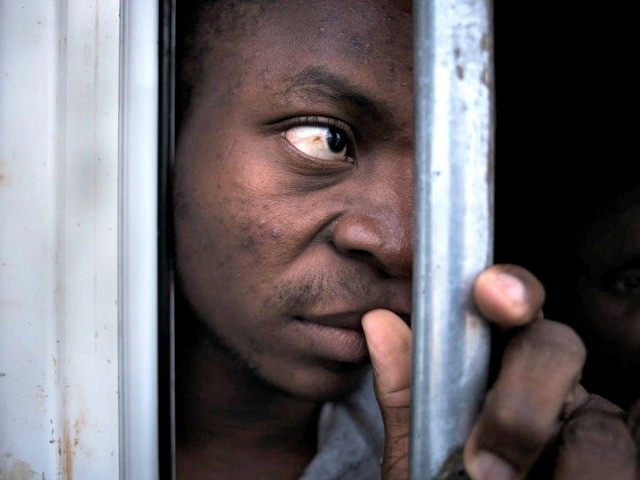Acts of “inhuman violence” are emerging from the investigation into the recent shipwreck in Libyan waters, such as that of a boy who was killed for “standing without permission” on board the boat. His body was then thrown into the sea.
Conditions in Libyan migrant holding camps are particularly severe, and many of those who have made it to Europe report beatings by smugglers and food deprivation.
The prosecutor of Catania, Giovanni Salvi, has interrogated the two smugglers apprehended after Saturday’s shipwreck, as well as a number of the survivors, and said that the evidence gathered to date reveals “a very serious situation of violence, beatings and inhuman treatment” received by migrants before boarding.
A group of migrants crammed into a farmhouse while waiting to board the ill-fated vessel that later capsized off the coast of Libya were reportedly “savagely beaten with sticks” for failing to “obey the orders” of the traffickers. Witnesses said that some died of the beatings, and others died of starvation.
Flavio Di Giacomo, the spokesman for the International Organization for Migration and one of those who debriefed the survivors of Saturday’s disaster, said that according to the testimonies of the migrants, “they can be beaten, they can be killed without any specific reason. The women are raped many times.”
“So all the people,” he said, “they were shocked because of the shipwreck, but they were telling me, oh, my God, Libya — they didn’t expect so much violence in Libya.”
Di Giacomo also said that there is an “unwritten rule” that once you pay, you cannot go back. “Even if some migrants see that the weather conditions are bad and that the vessels are really unsafe and unseaworthy, and they change their mind, they cannot do that. So they are forced to get on board, with sticks, with guns,” he said.
One survivor testified: “If we had not boarded the traffickers would have killed us. For many of us it was the first time we saw the sea and we had terror in going forward.” To make them get in the boats, “they beat us with sticks on the head and hands,” he said.
Meanwhile, in their interrogations, the two suspected smugglers responsible for the shipwreck have been blaming each other for the disaster.
The Syrian Bikhit Mahmud, in an attempt to shift all the blame for the emerging atrocities said, “He was driving,” referring to the Tunisian Mohamed Ali Malek.
The mutual accusations of the two smugglers were heard in jail by prosecutors.
Follow Thomas D. Williams on Twitter @tdwilliamsrome

COMMENTS
Please let us know if you're having issues with commenting.